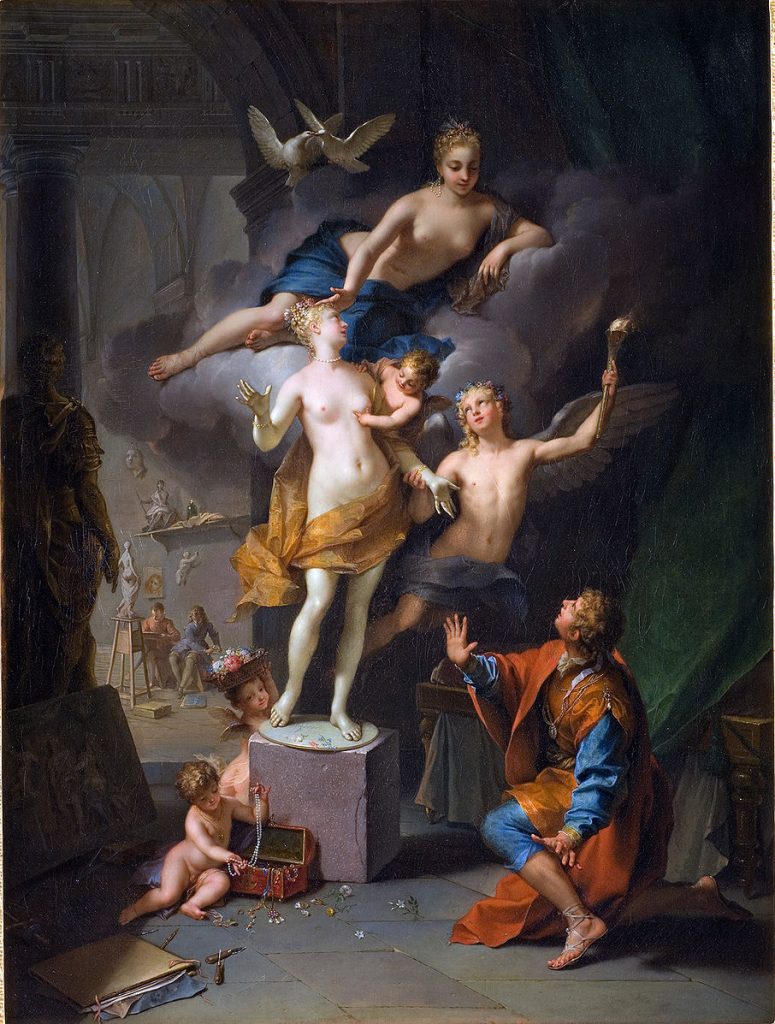I was watching the 1960’s musical film My Fair Lady and was struck by the fact that although I know the story well, I did not remember the powerful words I have my own soul. My own spark of divine fire. My Fair Lady was based on a play by George Bernard Shaw called Pygmalion which in turn was based on an ancient Greek tale of a sculptor who worshipped the goddess Aphrodite. He was so besotted by her that he created a statue of her in her honour.
Aphrodite was so flattered by Pygmalion’s devotion, that to repay the compliment, she sparked the fire of life into the effigy. The now living ex-statue was named Galatea and she and Pygmalion lived out a happy mortal life together. This joyous ending was Aphrodite’s reward to Pygmalion for his devotion and belief in her. Nowadays, we can use the term Pygmalion Effect when a coach or teacher helps or indeed, sparks somebody to achieve success by instilling belief in them.
The ‘spark of divine fire’ also reminds me of another bearer of a fiery torch; the Titan god Prometheus.
Prometheus (whose name means foresight), was a different kettle of fish from Pygmalion. His agenda was much loftier than simply finding the ‘right’ girl. His mission, which he accomplished with aplomb, was to steal fire from the gods’ god Zeus and distribute it around the world. The fire was a metaphor for knowledge and as it circumnavigated the flat ancient world, humans became more aware and more confident. This upset Zeus and his co-gods because it meant that faced with knowledgeable and questioning humans, their power could be undermined.
Prometheus was a redistributor, a rebel with a taste for disruption. Like an ancient Robin Hood, his actions were democratic and inclusive. His deed, on the surface, was the opposite of Pygmalion’s seemingly self-focussed work. However, further examination shows that perhaps Pygmalion and Prometheus were not that dissimilar after all. Prometheus’ story inspired the 17th Century idea that ‘Knowledge is Power, knowledge shared is power multiplied’ and spread the notion that if more people know more stuff, there is a better chance of several things improving at the same time. Rather than contradict, it links to the Pygmalion concept that if you successfully instil belief into somebody, they can forge ahead and achieve great things. Having lit the blue touch-paper, the teacher or leader can stand aside.
Pygmalion’s starting point was faulty. He was driven to build the perfect woman because the ones put on Earth by the gods were not, he decided, good enough. His flaws included arrogance and naivety but he also demonstrated that by concentrating on his skills, working doggedly and being open to inspiration, he could achieve. One assumes that Aphrodite’s intervention was a surprise to Pygmalion as there is nothing to suggest he began his labours expecting external help. He simply got on with it much in the way that Prometheus did when he elected to distribute the fires of knowledge.
The tales of Prometheus and Pygmalion show that there always comes a point when planning and forethought outlive their use and have to be replaced by action.
Facta non-Verba and a Happy New Year!

